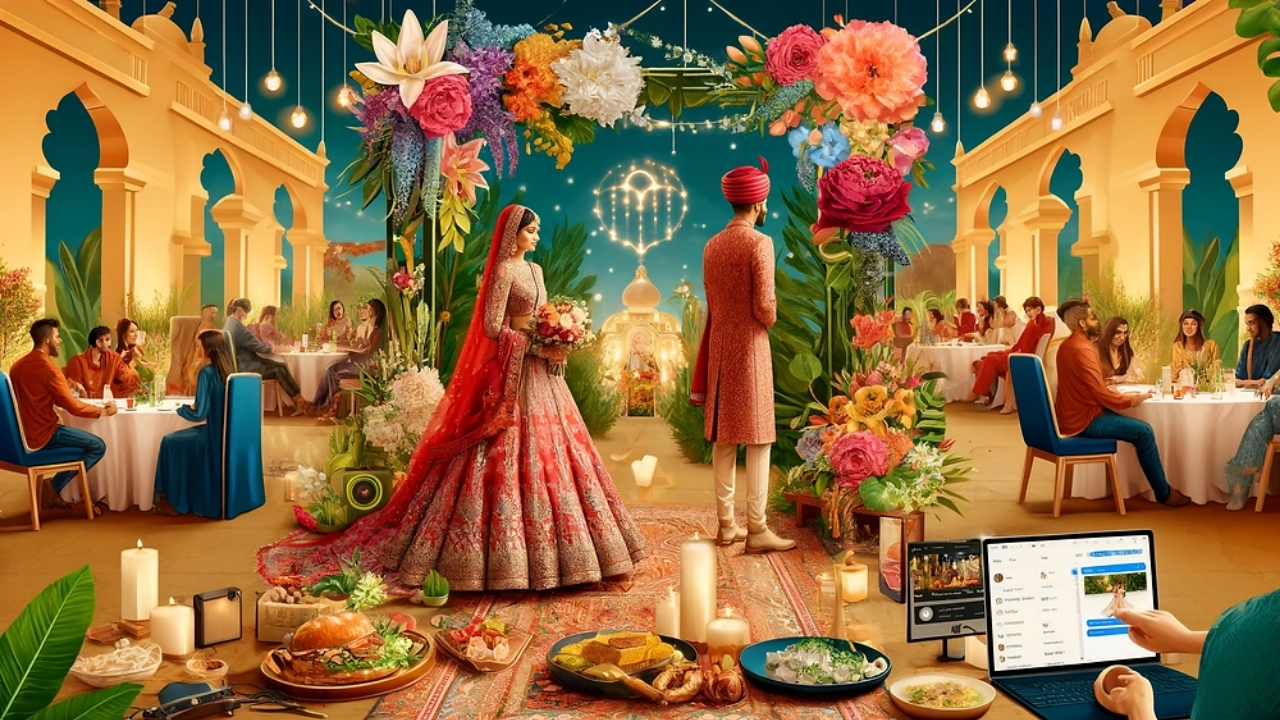Wedding planning is one of the most exciting — and stressful — milestones in someone’s life. From venues and vendors to guest lists and budgets, it can quickly become overwhelming. That’s where AI comes in. Creating a smart, intuitive wedding planning tool powered by artificial intelligence is the perfect opportunity to streamline the process and help couples manage it all with ease.
If you’re a developer, event planner, or entrepreneur, launching an AI wedding assistant can tap into a lucrative market that’s actively seeking tools to make their big day stress-free and memorable.
Why AI Wedding Planning Tools Are the Future
1. Couples Want Personalization Without Overwhelm
A modern AI wedding planning tool can:
-
Generate custom timelines and checklists
-
Recommend vendors based on location, budget, and style
-
Predict costs and optimize budgets
-
Offer guest list management with meal and seating preferences
By doing the heavy lifting, your tool becomes a virtual planner that learns and adapts to the couple’s preferences.
2. Wedding Planners Can Scale Their Services
Professional planners can use AI to:
-
Manage multiple clients with efficiency
-
Deliver personalized plans faster
-
Automate follow-ups, reminders, and RSVP tracking
-
Offer a tech-forward experience that sets them apart
🔗 See how Joy uses smart features to manage guest lists, RSVPs, and wedding websites — a sign that AI-driven planning tools are in high demand.
Key Features to Include in Your AI Wedding Planning Tool
1. Smart Vendor Matching
Allow users to input:
-
Preferred date and location
-
Budget range
-
Wedding style (boho, modern, rustic, etc.)
-
Cultural or religious requirements
Then match them with vetted vendors for venues, florists, DJs, caterers, and more.
2. Dynamic Budget Planner
-
Break down typical costs per category
-
Suggest budget reallocations
-
Include real-time updates when choices are made (e.g., increase in guest count updates catering cost)
3. Custom Timeline Generator
Create a planning calendar that adjusts based on the wedding date:
-
Engagement checklist
-
Dress shopping deadlines
-
Invitations and RSVP follow-ups
-
Final walkthroughs and rehearsals
Example Prompt for AI Wedding Assistant
Prompt: “Create a wedding planning checklist for a couple getting married on September 15, 2025, in Napa Valley. The wedding will be outdoors with 120 guests and a rustic theme. Include monthly to-dos, vendor suggestions, and budget guidelines.”
This type of prompt can be automated within your tool to generate a tailored plan for each user in seconds.
How to Build Your Wedding Planning Tool
Step 1: Choose Your AI Stack
Use:
-
OpenAI, Claude, or Mistral for natural language planning
-
LangChain + Pinecone for personalized memory and vendor search
-
Firebase or Supabase for user data and authentication
-
Stripe for payments (if monetizing)
Design a user-friendly UI with React, Framer, or Bubble (for no-code).
Step 2: Organize Features into Dashboards
Include:
-
Vendor shortlist manager
-
Interactive budget pie chart
-
Guest list and seating planner
-
Calendar with reminders and notes
Allow couples to share access with their partner, planner, or family.
Monetization Strategies for AI Wedding Tools
1. Subscription Plans
-
Free: Basic checklists and vendor suggestions
-
Pro ($12/month): Budget planner, timeline generator, vendor management
-
Premium ($39/month): Custom plans, expert chat access, priority support
2. Vendor Referral Fees
Earn from:
-
Featured listings or placements
-
Lead generation for venues, photographers, etc.
-
Affiliate deals for wedding websites, dress shops, or decor
3. White-Label for Planners or Platforms
Offer your tool as a white-label solution for:
-
Wedding planners
-
Bridal apps
-
Venue websites
Marketing Strategies to Grow Your Wedding Planning Platform
1. SEO-Optimized Blog Content
Topics to write:
-
“Top 10 Wedding Planning Apps for 2025”
-
“AI vs Human Wedding Planner: What’s Best?”
-
“How to Plan a Wedding in 30 Days with AI”
2. Pinterest Boards and TikTok Walkthroughs
Share visuals of timelines, budgets, vendor profiles, and how AI assists with each task.
3. Partner With Influencers and Wedding Bloggers
Provide free access in exchange for reviews or audience demos.
Building an AI-powered wedding planning tool is a high-impact way to enter the events and SaaS space. You’ll be helping couples stay organized, reduce stress, and save money — all while offering planners and vendors a smarter way to connect with clients. The wedding tech space is ready for disruption, and your tool could be the one that makes every “I do” a little easier to plan.







